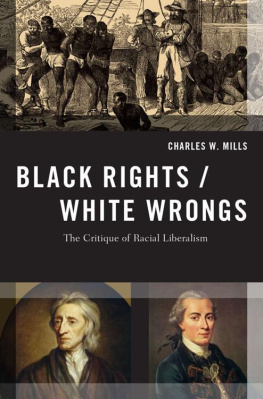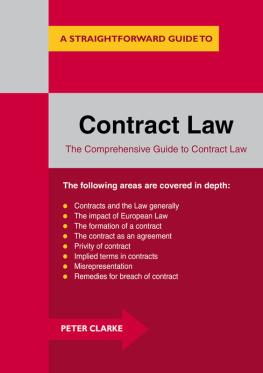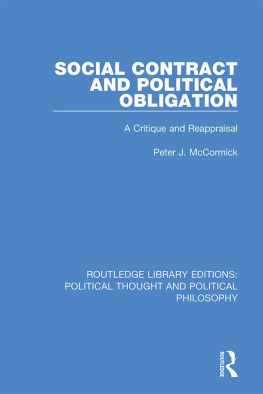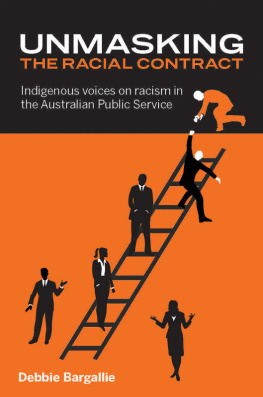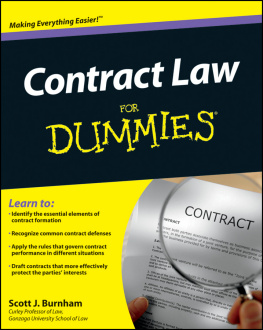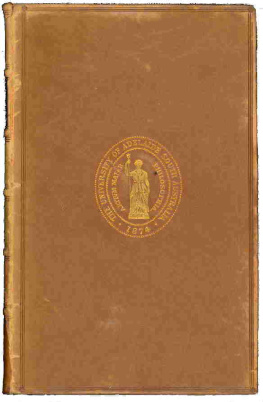Praise for The Racial Contract
This is a significant and compelling work. In the modest compass of an extended essay, Mills succeeds in altering our view of a central strand of modern political thought, the social contract tradition.... [H]is most accurate characterization of his enterprise comes, I believe, toward the end of the book when he places it in the tradition of radical enlightenment critique.... To this enterprise Mills has made a major contribution.Ethics
This is an ambitious little book, as it seeks to place race at the very center of political theory.... For those who agree that issues of race and racial justice demand far more attention from political theorists than they are currently receiving, the book is a welcome contribution. By showing the systematic and deeply embedded nature of racism in modern Western political theory and practice, Mills demonstrates that racist policies and ideas are not unfortunate divergences from the general rule of race neutrality but are themselves the rule in Western culture. In the process, Mills provides an analytical framework that connects claims for domestic racial justice and those for international justice. In all these respects the book is an important contribution to current discussions about justice in both realms.American Political Science Review
Mills [argues that] most [white people] are still unknowingly influenced by a history of white supremacist philosophies and ideals that undergird our most basic assumptions about personhood and natural rights. But what Mills wants to drive home in his terse, thoughtful book is that white people can change their minds. If they are honest with themselves and non-whites about the importance of race in shaping political and moral culture in the West, they will be one step closer to knowing what people of color have known all along.... They will know that racial inequality is not some accidental detour on the road to perfect political justice. Racial inequality is built into the structure of liberaldemocratic politics itself.New York Press
The objective of this book... is nothing less than the reshaping of liberal political philosophy from the bottom up.... Mills contends that the ground zero ofWestern democratic societies is not the mythical social contract that has prevailed among political philosophers... but a racial contract.... In short, we have a white supremacist world because whites have agreed to make it so. The revisionary power of this move is evident.The Nation
So (seemingly) simple and straightforward, yet quite nicely nuanced, Charles Millss The Racial Contract is a highly accessible book on an inflammatory topic. He has succeeded brilliantly where so many others have failed.
Nell Irvin Painter, Princeton University
Millss work on the Racial Contract is a major contribution to modern critical social and political thought, and will become an important, widely discussed work. It exposes, to devastating effect, the unacknowledged racial presuppositions of the entire social contract tradition, which is to say, all of liberal political theory for the past four centuries.
Robert Paul Wolff, University of Massachusetts, Amherst
Fish dont see water, men dont see patriarchy, and white philosophers dont see white supremacy. We can do little about fish. Carole Pateman and others have made the sexual contract visible for those who care to look. Now Charles Mills has made it equally clear how whites dominate people of color, even (or especially) when they have no such intention. He asks whites not to feel guilty, but rather to do something much more difficultunderstand and take responsibility for a structure which they did not create but still benefit from.
Jennifer Hochschild, Princeton University
Like Melvilles Benito Cereno, this short, explosive book unflinchingly explores the centrality of raceboth in its utterly open brutality and in its remarkable ability to remain hiddento the history of the Western nation-state. Sure to provoke a heated debate far beyond the field of political philosophy, this bold and wide-ranging study makes a clear and convincing case for the view that systemic racial oppression was not an anomaly sullying otherwise universalistic assumptions about individual rights, but the context in which theorizing about such rights occurred.
David Roediger, University of Minnesota
Charles Millss treatment of the biases in western philosophy in The Racial Contract is a tour de force.
Award Statement, Gustavus Myers Center for the Study of Bigotry and Human Rights in North America
To take the arguments that Mills makes in The Racial Contract seriously is to be prepared to rethink the concept of race and the structure of our political systems. This is a very important book indeed, and should be a welcome addition to the ongoing discussions surrounding social contract theory.... It would be an excellent critical complement to any course that covers the history of social contract theory or that deals with issues surrounding race and racism.Teaching Philosophy
CHARLES W. MILLS
The Racial Contract
CORNELL UNIVERSITY PRESS
ITHACA AND LONDON
CONTENTS
ACKNOWLEDGMENTS
The history that inspires this short book goes back a long way, and I have been thinking about that history, and how to incorporate it into a philosophical framework, for a long time. Along the way I have incurred many debts, some of which I have certainly forgotten, and this list of acknowledgments is only partial.
First of all, of course, to my family: my parents, Gladstone and Winnifred Mills, who brought me up to give equal respect to people of all races; my brother, Raymond Mills, and my cousin, Ward Mills, for consciousness-raising; my uncle and aunt, Don and Sonia Mills, for their role in Jamaicas own 1970s struggle against the legacy of the global Racial Contract. My wife, Elle Mills, has supported my work from the outset, sometimes having greater faith in me than I had in myself.
Special friends, past and present, should also be cited: thanks to Bobs, for old times sake; to Lois, a friend indeed, and a friend in deed; to Femi, fellow Third Worlder, for numerous conversations since our days in grad school together about how philosophy in the academy could be made less academic.
Horace Levy, my first philosophy teacher, and for many years the mobile one-person philosophy unit of the Mona campus of the University of the West Indies, deserves particular mention, as do Frank Cunningham and Danny Goldstick of the University of Toronto, who welcomed me to the Philosophy Department graduate program there more years ago than any of us cares to remember. John Slaters confidence in me and support of my candidacy, despite my almost nonexistent undergraduate background in the subject, were crucial. To all of them, I am obligated.
I originally started working on these issues on a 1989 junior faculty summer research fellowship at the University of Oklahoma. A first draft was written in my 19931994 year as a Fellow of the Institute for the Humanities, University of Illinois at Chicago (UIC), and the final draft was completed during my sabbatical in the spring term of 1997 At both my previous and my present institution, I have been fortunate to have had a series of Chairs who have been very supportive of applications for grants, fellowships, travel, leave, and sabbaticals: John Biro and Kenneth Merrill at the University of Oklahoma; Richard Kraut, Dorothy Grover, and Bill Hart at UIC. Let me say how deeply grateful I am to them for that support. In addition, I have made endless requests for assistance from Charlotte Jackson and Valerie McQuay, the UIC Philosophy Departments invaluable administrative assistants, and they have been endlessly patient and helpful, greatly facilitating my work.
Next page

